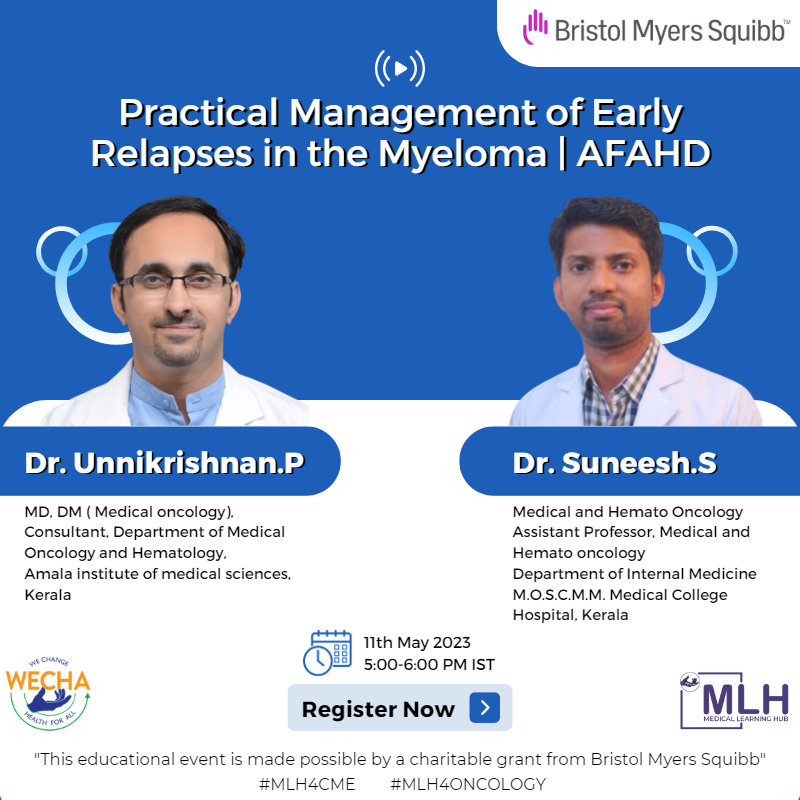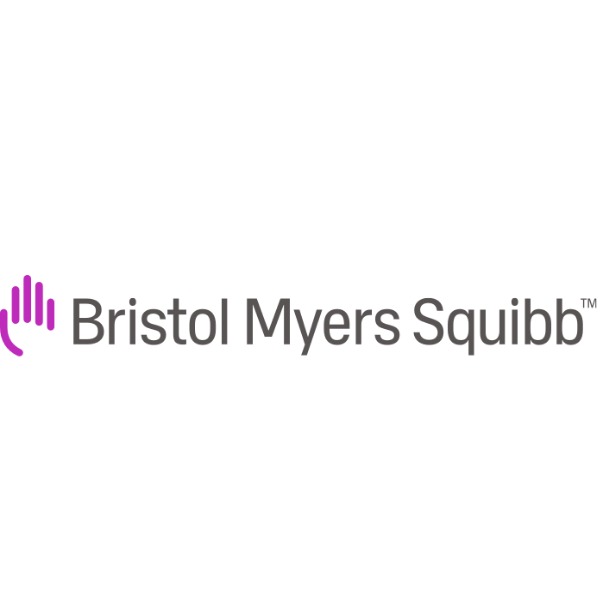Module 1: Introduction: Dr Shubhi from Medical Learning Hub welcomed all participants and the speaker Dr Unnikrishnan.P and Dr Suneesh S. She introduced the speakers. All the general instructions were explained and the first poll was raised.
Module 2: Optimal approach to treatment for first and second relapse: Dr Unnikrishnan.P
He thanked the organization and the highlights of his session are as below.
- Pathogenesis and clinical findings of multiple myeloma
- The clinical course of multiple myeloma
- The mechanism of actions of different classes of drugs active in multiple myeloma.
- The list of FDA approved drugs and conventional chemotherapies for treating multiple myeloma.
- He explained the different categories like immunotherapies drugs, proteosome inhibitors, steroids, antibody drugs, XPO1 inhibitors etc for treating multiple myeloma.
- Different stage classification for multiple myeloma.
- Transplant eligible and ineligible drugs for newly diagnosed myeloma.
- Definition of relapsed and/or refractory multiple myeloma.
- ASCT as salvage therapy: more effective than salvage chemotherapy with improved PFS and even OS.
- The drug therapy of Lenalidomide sensitive group.
- The explanation of different study designs with the combination of different drugs and its regimen were explained like Pollux study, ASPIRE trial design for the drugs, Carfilzomib, Lenalidomide, dexamethasone (KRd), TOURMALINE MM1 study design for the drugs Ixazomib, lenalidomide, dexamethasone (IRd), ELOQUENT 2 study design for the drugs Elotuzumab, lenalidomide, dexamethasone (ERd), CASTOR study for Daratumumab, bortezomib, dexamethasone (DVd) drug regimen etc.
- Selection of multiple myeloma therapy at first and second relapse.
- Several questions were answered at the end of the session.
Module 3: Case Challenges in Newly Diagnosed Multiple Myeloma: Dr Suneesh S
The highlights of his session are as below.
- Introduction and basic understanding of multiple myeloma.
- Challenges in diagnosis of multiple myeloma like bone pain, anemia, hypercalcemia, acute kidney injury etc. Possible diagnostic outcomes after myeloma workup if there is IgG myeloma, IgM myeloma or only if it is a light chain disease.
- Definition of plasmacytoma, smoldering multiple myeloma.
- Definition of monoclonal gammopathy of undetermined significance.
- Classification of Active multiple myeloma with high risk and standard risk categories.
- Survival rate based on RISS.
- The initial treatment of multiple myeloma in resource limited settings.
- Benefits of autologous HCT vs chemotherapy.
- Choice of treatment regimens based on risk adapted treatment approach, patient’s age, comorbidities status, performance status, potential for chemotherapy etc.
- Commonly used triple drug regimens are for lower risk myeloma and high risk myeloma.
- Complications and infection management. Studies have shown that Levofloxacin reduced first episode fever and death by 19% vs 27% with 12 weeks of treatment.
- Several questions were answered at the end of the session.
Module 4: Vote of Thanks: Dr Shubhi from Medical Learning Hub delivered a vote of thanks thanking all the participants. Second poll was raised.
We wish you a great learning experience!
Introduction & welcome note
Speaker 1: Optimal approach to treatment for first and second relapse: Dr Unnikrishnan.P, MD, DM ( Medical oncology), Consultant, Department of medical oncology and Hematology, Amala institute of medical sciences, Kerala
Speaker 2: Case Challenges in Newly Diagnosed Multiple Myeloma: Dr Suneesh S, Medical and Hemato Oncology, Assistant professor in division of medical and hemato oncology, M.O.S.C.M.M. Medical College Hospital, Kerala
Question & Answer
Vote of thanks














